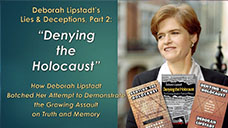In this essay my sister and my mother play the main roles. My relationship to bot was and still is very defining for me.
July 31, 1943
“Tomorrow is your second birthday!”, the mother explains to her daughter. The little girl kneels down together with her older brother and her mother. It is evening again, bedtime for the kids. The mother says her evening prayer, and both children concentrate obediently to what their mother says. At the end, the five-year-old brother adds a wish to her mother’s prayer:
“And please send my daddy back home to us,” she begs Jesus.
The little girl knows her daddy only from this handsome picture on the wall and through the nice stories her mother tells her frequently. Her father is far, far away, somewhere in Russia, but her mother refuses to tell her what he is doing there. Only that he cannot come back right now. Telling her the truth would not make daddy come back, but sure would make the little girl have nightmares. Tucked in, still wearing their clothes, she listens to her mother telling both kids a bedtime story. After a kiss for good night, mommy witches off the faint light.
Both kids are sound asleep, when the mother rushes into the kids’ bedroom several hours later and wakes them up. The little girl is scared. The sirens of the entire city are wailing, but what scares her most is the panic-stricken face of her mother. For the little girl, it has almost become a routine to sleep with clothes and to sometimes wake up to the sirens, having to go with her mother to the air-raid shelters in the middle of the night, when the entire city was dark. No lamps are allowed to shed their light on the streets in those years. But this time, things are different. The little girl hears the roaring of heavy engines in the air, and she hears explosions and feels distant shock waves. In just a few seconds, they are all out in the streets. The mother pocks up her daughter, takes her son by the hand, and they run through the dark streets together with other people, trying to reach the safety of the shelter. In the distance, the little girl sees flames and smoke rising from a factory, but her mother gives her no time to watch. They reach the already crammed shelter, just seconds before the block guard wants to close the door. They squeeze themselves in. The little girl stands right beside the door. The guard closes the heavy steel door with lots of force. “Boom.” The girl is struck by a terrible pain in her right thumb. She had her thumb in the door crack. She screams at the top of her lungs. The mother discovers what has happened: The heavy steel door had amputated the upper part of the girl’s right thumb. She is bleeding profusely and is about to fade out. First aid is quickly given, but no further assistance can be given since it is raining fire and death outside, as everywhere in Germany in those years. This is the birthday present of the Allied liberators for that little girl. It could be worse. Over half a million Germans are roasted to death alive in this year alone during the firestorms caused by the allied bomber fleets. Most of them are children, woman and elderly people, since most men are at the front, fighting a lost war.
1947
The city lays in ruins, but the girl’s home at the outskirts of the city has been spared. Only the bathroom wall had collapsed as a result of a shock wave sent out by a single bomb, a stay, which exploded some hundred yards away in a settlement. Next spring the girl will start going to school. The picture on the wall is still her only way of knowing her father. He is now in France, her mother tells her. He has to work for other people, but he will return soon. And then, this one September morning, her mother is informed that her husband will arrive back from imprisonment in a French forced labor camp.A few days later. It is a warm September afternoon. The leaves on the trees are the only color in these grey days of a collapsed nation with its cities in dust, debris and rubble. The railway system stayed basically untouched by the allied bombings, since their aim was not so much to disrupt German war production, but, as they were proud to tell, to kill as many Germans as possible as long as the war was still underway. So here the mother stays with her son and daughter, in an absurd landscape, surrounded by ruins, but in an intact railway station, waiting for a train to bring the most precious load it ever carried for them back home: daddy.
The train stops, the doors open, passengers leave the train and block the view for the little girl. Finally, there he is! She recognizes him right away. It is the man on the picture! She is so happy to finally have a daddy! The emaciated man sees his wife first, comes close, embraces her, then greets his son who he had last seen when he was just 5 years old. The he wants to walk off with his wife and son. It strikes the little girl like a heavy punch in her stomach.
“He has totally ignored me!”
She feels rejected by her father and starts crying. The mother notices the faux pas and asks her husband to welcome her as well. The father turns around, looks at the little girl, and asks innocently “Who is this?” The mother comprehends quickly that, of course, the father can impossibly recognize the little girl. He has seen her only once so far, when the girl was a toddler of just over a year of age, and even then only for a few days during his short leave from the front.
“This is your daughter!”
The father suddenly breaks out in tears, takes the cute girl in his arms, and now they weep together, the father first because he is so sorry to have ignored her, but then they both weep because they are simply overwhelmed by happiness to have each other back.
Change of Scene – 1969
The cute little girl just turned six years old. Her brother, one year younger, relies heavily on her, and she enjoys playing a mother-substitute for him once in a while. It gives her the self-confidence that she cannot find in her relationship with her father. He doesn’t seem to care a lot about her at all.
“He grew up in a world where girls were not considered to be worth a lot”, her mother tries to explain. “He sure loves you, but he cannot really show it” she excuses the indifference of her husband.
At that night, all hell breaks loose in the little girl’s world. She falls in a coma. It is late in the evening when her mother recognizes that her daughter isn’t just sleeping. The girl is cramping, she is dying. The mother quickly organizes somebody to watch after her two little boys, and off she rushes with her husband and the girl in coma to the next hospital in a small town five miles away. The girl is diagnosed with diabetes mellitus first degree, a total failure of the pancreas. They manage to stabilize her, and in a few days she is back at home. But from this day on, all of her life seems to be a constant slope downward. She is no longer allowed to have any sweets. She needs to get insulin injections thrice a day with a syringe. And to top it all, her father’s indifference sometimes turns into hardly hidden contempt.
Change of Scene – 1960-1982
Finally, after so many months of begging, her parents cave in.
“Alright, but you have to return back home every evening! You have to spend the night at home!” her father insists.
“OK”, the nineteen-year-old young woman agrees. After two years serving as a secretary in a local factory producing roller skates, she finally can at least get closer to her dreams: becoming a secretary at a Catholic College for Social Education. She always dreamed of becoming a social education worker, but her parents didn’t have the money to have her go to school for more than the usual eight years, so when she turned 14, she had to find a position as an apprentice, and there was not a lot a young girl could do with eight years of school education and good language skills but to become a secretary. But now, she would work at a place where she might find a way to enter a second career after all. Of course, things turn out to be different than expected. The college is too far away for her to return every night, so her parents have to swallow the fact that she returns only for the weekend. But the young lady is happy, surrounded by all these young, bright people striving to become social education workers.
* * *
“There he comes again”, her colleague teases her, a girl of her age working together with her in the office. Georg, a 25-year-old, tall, handsome man enters the office to enroll for a class in pottery. The young lady blushes. She has an eye on this young, future social education worker already for quite a while, but he doesn’t really pay attention to her, since he is kind of seeing somebody else already. As soon as he is gone, her colleague sits down beside her.
“He is just perfect for you beanpole. Do you know what? Next week they have this Chinese Lantern fest here at the College. And I bet your crush will be there as well. How about we go there as well? Girl, you are so much more attractive and so much superior in flirting than this other gal. I actually have never seen them being really passionate, so I do not even think it is anything serious. It would be a breeze for you to pinch her boyfriend.”
Our young lady looks up from her work.
“You are right. And if it’s only about having fun. Yes, let’s try it.”
On this evening, she uses all her female trickery: appealing clothes, attractive make-up, and lots of charm and smiles. It is a complete success. He is magically drawn to her. They flirt, they see each other frequently, they fall in love, and after just a little over a year, he asks her father for permission to marry his daughter, who is not even 21.
* * *
The daily life of this young couple turns out to be different than the weekend relationship they had so far. He turns out to have been the perfect masquerade player. A man of stature, a gentleman, a socially engaged student, a bright guy with lots of social skills, talkative, funny, and sensitive he seems to be if observed superficially, as he presents himself to the outside. But when the doors close behind him, he changes. It takes the young wife a while to figure it out. Step by step, she learns to distinguish theater from reality. He pretends to be what he wants to be, but he isn’t. He is a maverick, very impulsive, sometimes aggressive, and an introvert. Certainly not a bad lover and provider, but not a good friend, not a communicator. He criticizes and complains, is ungrateful, and hardly ever finds a good word for anything or anyone. He does not show positive emotions.
After a few months in a small apartment not too far away from her parents, her young husband gets a job some 130 miles away. They move, and she enters a world where she totally depends on him, particularly after she starts having children, three in a row in just a little more than three years. Things quickly turn ugly as he is under enormous pressure to perform as the new director of a Catholic vacation resort in a small town tucked away in the Taunus mountains northwest of Frankfurt. He is not up to it. In the following years, he threatens again and again to run away, to emigrate to Australia where his brother lives temporarily, to join a Kibbutz in Israel to do good what Germans did wrong during the war, and other weird ideas. As he grows increasingly frustrated, he also gets more violent on occasions, particularly against his defiant firstborn son, which poisons the relationship of the couple.
Because she experiences her total economic dependence on him as threatening, she takes her fate in her own hands: She enrolls at a college, makes a degree in home economics, and within several years she advances so much in the field that she ends up being a teacher for that topic at that same college. Then the couple plans what they hope could be a way out of their misery: He buys an old decaying monastery outside of their small town for just $2,500. He works frantically to convert it into a new home, planning to have a restaurant their where his wife can fulfill her dreams of independence, and where he can be a partner. However, this plan comes with two heavy burdens: the money they have to borrow from banks to rebuild the place puts them under tremendous financial pressure, and once they move to their new home and the restaurant is managed by her, he has to quit his job. Now he depends on her, a situation too humiliating for him, who has always felt very patriarchic. The marriage deteriorates to the point where she has frequent nightmares of being abandoned, struggling for survival, and where he finally makes his old threats come true: He leaves, goes to Israel trying to join a Kibbutz, is rejected because he isn’t Jewish, and comes back, only to find his wife to have packed her and her kids baggage, ready to leave.
“Enough is enough. I cannot live that way anymore. I move back to my parents town,” the mother of three children tells him.
Of course he begs her to take him back. The maverick he is, he has nobody and nowhere else to go. So he sells the place and moves after her. It takes him only a few months to make her cave in. He gives her all the money from the sold house as a proof of his good will, and as she has demanded. So she buys a house in her town of birth, and they move together again, only to experience the old stories over and over again.
* * *
A few years later, and he is gone again, has another one of his episodes. In the meantime, she has met this talkative, sensitive man. She has an affair. She keeps it a secret, or so she thinks.
“Mom, ever since daddy left is, you are so different, so upbeat, so happy. Can it be that you have a boyfriend?” her oldest son asks her point blank one evening, while they are both sitting together talking. She is stunned that he has caught her, but not really surprised. For the past six year they have spent time together almost every evening. The relationship between mother and son could hardly be closer. They know each other inside out. And so she opens up her heart completely to this by now 17-year-old, the who has become her closest confidant.
“Mom, why don’t you dump dad and take the other guy. He sounds like he is very nice, and I would really like to have this pleasant stepfather rather than our real daddy,” her oldest son tries to persuade her. During the next days he even lets his two siblings in on it, and they join into their brother’s pleas: “Please ditch daddy and finally organize us a real father!”
But she just can’t do it. She decides against the other gentlemen, and for the umptiest time she welcomes her husband back a few weeks later, to start a new cycle. Only after he retires things settle in: He goes on long maverick trips all over Europe in his camping bus, while she stays at home, socializing with friends. Opposites attract, and somehow they magically managed to stick together through thick and thin. No modern marriage would ever have survived what these two individuals went through, and only because she somehow must love him, despite of all what happened.
Change of Scene – 1982
The girl is now a young woman. Her illness has taken its toll on her, as the metabolic imbalances have messed up her hormones, turning puberty into an ordeal that could only be overcome with hormone treatment. Her relationship with her father has more and more deteriorated over the years. All that is left is fear and contempt. Her relationship with her mother isn’t that good either. The young woman struggles from one disaster in her private life to another, and experiences rejection in the professional world as a florist as well due to her illness. Her self-confidence is broken. There is only one person left that she trust: Her one year younger brother. He entertains her once in a while with his stories, with philosophical ramblings, his psychological family analysis, asf. He makes her feel important, if not as an intellectual equal, so at least as a good listener, and somebody who would pay attention to him, perhaps even adore him. She trusts him, and he feels that she needs him. In these difficult years, something special grows between them. Just a few years ago, when they both were in puberty, they had these hateful exchanges. And how mean he was in those years when he ratted on her to his parents each time she had eaten some sweets. They also both remember how he had to fight for his independence at age eight or so, because his sister didn’t want to stop mothering him. Now he understands that she has always been trying to be close to him. And now he seeks this closeness too. During the worst phase in her life, when everything seems hopeless and senseless, he is there.
One of those nights, the young woman goes outside to smoke a cigarette. Her parents have expressively forbidden her to smoke, but she doesn’t care. She hides, even from her brother, because she knows he is a ardent opponent of smoking, so she knows that all the love between her and him does probably not carry that far in this regard. She sits in the grass in the dark and sucks in the poisonous, but strangely pleasing smoke. Suddenly, the front door opens and her brother comes out to join her in the front yard. In a reflex she throws the cigarette into the bushes and pretends that nothing had happened. The brother approaches her, but instead of sitting down beside her, her walks past her to the bushes, reaches into them, picks up the glowing cigarette, and gives it back to her.
“I do not think it is good what you are doing, but it is certainly a disgusting hypocrisy of our parent to forbid you to smoke, while mom is a chain smoker and daddy smokes occasionally as well. I won’t rat on you in. Don’t worry. I will not tell you what is good for you. You need to know that yourself.”
She gazes at him as if she had just been struck by a lightning. He sits down beside her and starts to talk about God and the world, as if nothing had happened. He cares.
Just a few months later, her brother surprises her in the middle of the night while she is plundering the fridge, ripping off all sorts of food and eating it in masses.
“What the heck are you doing?” he asks her, and continues, “You cannot do this, you harm yourself!”
“I need to eat. I have an extremely low blood sugar level,” she replies.
The whole thing is strange so he asks if anything is wrong. Having in mind that he didn’t turn her in a few month ago when he caught her smoking in the front yard, she tells him that she tried to commit suicide by taking an overdose of insulin. She was about to fall in a coma in bed, but couldn’t stand the feeling of having such a low blood sugar.
“Please don’t tell anybody,” she begs him.
“Promised,” he responds. And so, the iron bond between brother and sister is forged. From there on, they love each other, respect each other, listen to each other, support each other, help each other where ever they can. Her brother becomes the most important hold in her shaky life. He helps her to stir through the cliffs and shoals of life over the next years, by talking, listening, by just being there whenever she needs somebody, until she finally, after some ten more years, reaches safer shores, calmer waters. But the bond remains. And she quits smoking eventually…






